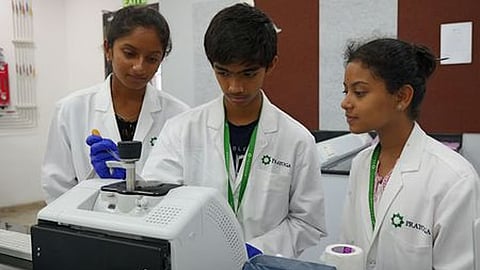

BENGALURU: Receipts printed on thermal paper may disrupt hormones and even cause cancer, a study conducted by three school students reveals.
The research found traces of toxic chemicals like Bisphenol S (BPS) and Diphenyl Sulfone (DPS) in thermal bill paper, the material used to make the receipts handled by millions on a daily basis. The three young researchers are R Usha, R Nalini and Aniketh V Bhat.
Usha and Nalini study in 10th and 9th standards respectively at Sai Krushna Vidya Mandir School (Hosadoddi), and Bhat studies in the 10th standard at Rashtrotthana Vidya Kendra (Banashankari).
For the study, printed and unprinted thermal paper samples were tested with different solvents to extract their chemical compositions. The analysis confirmed the presence of BPS and DPS.
The paper samples were purchased from a local stationery store and cut into uniform squares to ensure consistency. Printed bills were collected from sources including ATMs, supermarkets, bus tickets, electricity bills, and vegetable vendors.
These chemicals can potentially pass into the human body through skin contact and remain for hours, even impacting the heart, hormones and nervous system.
The chemicals are also carcinogenic in nature. “The significance of our findings lies in uncovering how everyday items such as shopping receipts can expose people to harmful chemicals like Bisphenol derivatives.
The students demonstrated genuine curiosity and commitment, from learning the basics of extraction and analysis, to interpreting the broader implications of their results.
Beyond laboratory skills, the project gave them a sense of responsibility to create awareness in their families and Communities,” said Dr S Athavan Alias Anand, who acted as the primary investigator in the study.
